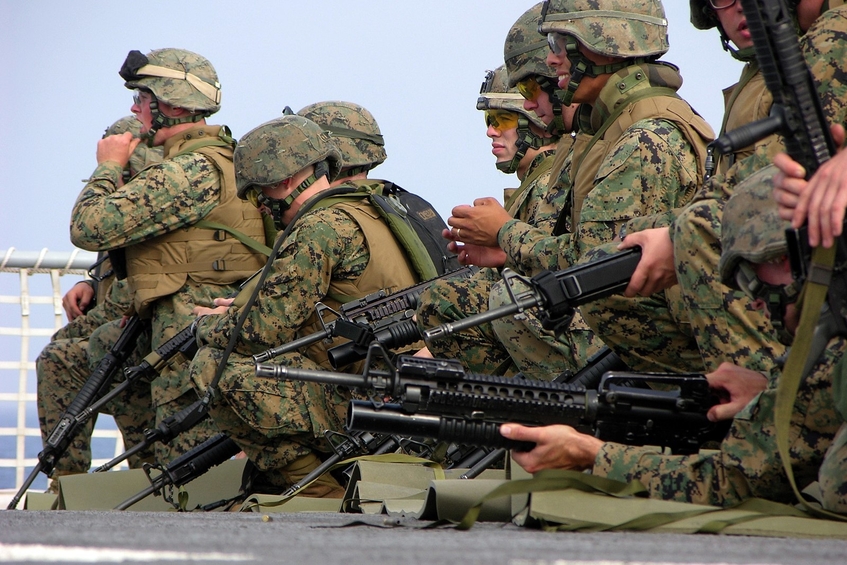This post is also available in:
 עברית (Hebrew)
עברית (Hebrew)
The U.S. Marines Corps will likely majorly increase experimentation in order to push future success in an increasingly competitive field.
According to the new commanding general of Marine Corps Combat Development Command Lt. Gen David Berger, “The Marine Corps is really rapidly trying to learn faster, get stuff out to the field faster in … a 70 percent prototype sort of mode.”
Berger said he wants to see the service’s experimentation events rapidly increase, noting that even boosting them to three times the number they currently are may not be enough.
An example and a first step for this new approach is the revival of the military’s Sea Dragon experiments that first debuted in the 1990s.
“It’s a different way of experimentation than the original Sea Dragon,” he said. The original included one Marine Corps unit conducting experiments for one year.
Now the entire service is doing a series of experiments all feeding back to headquarters.
Instead of just relying on the Marine Corps Warfighting Lab to facilitate experiments, Marine Expeditionary Force (MEF) commanders are taking it upon themselves to integrate experimentation into their units, Berger said.
Berger explains that MEF commanders need to generate readiness for battle by doing “seven things that I know I need to do to make sure I have the combat readiness right now and I’m also going to do four other things that are experimental.”
This is a new way of thinking because previously every minute of every exercise was dedicated to training for the current fight.
Berger further explains: “I’m going to carve out some amount of experimentation in my regular exercise to learn for the future.”
The Marine Corps Warfighting Lab is also investing in large-scale experiments such as the advanced naval technology exercise, or ANTX, said Brig. Gen. Christian Wortman, commanding general of the lab.
During the last iteration of the event, the lab focused on urban warfare, he said. The next will concentrate on operating in contested environments, which is becoming increasingly worrisome as adversaries invest in anti-access/area denial technologies, as reported in nationaldefensemagazine.org.


























